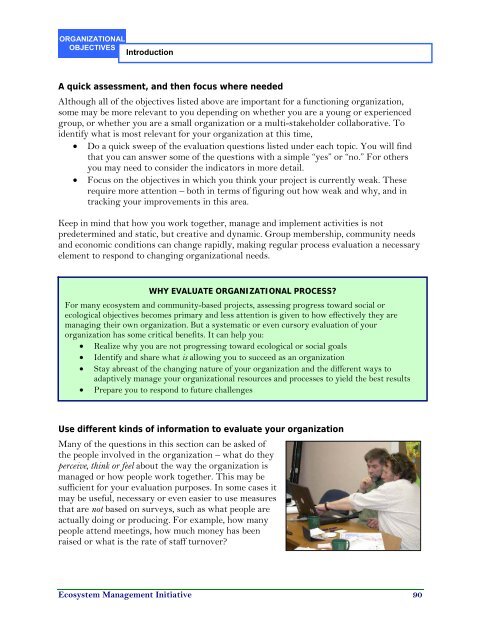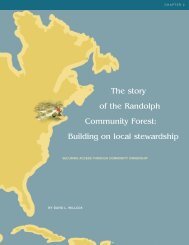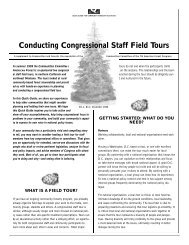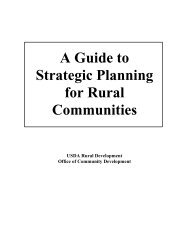Evaluation Sourcebook (.pdf) - School of Natural Resources and ...
Evaluation Sourcebook (.pdf) - School of Natural Resources and ...
Evaluation Sourcebook (.pdf) - School of Natural Resources and ...
- No tags were found...
Create successful ePaper yourself
Turn your PDF publications into a flip-book with our unique Google optimized e-Paper software.
ORGANIZATIONALOBJECTIVESIntroductionA quick assessment, <strong>and</strong> then focus where neededAlthough all <strong>of</strong> the objectives listed above are important for a functioning organization,some may be more relevant to you depending on whether you are a young or experiencedgroup, or whether you are a small organization or a multi-stakeholder collaborative. Toidentify what is most relevant for your organization at this time,• Do a quick sweep <strong>of</strong> the evaluation questions listed under each topic. You will findthat you can answer some <strong>of</strong> the questions with a simple “yes” or “no.” For othersyou may need to consider the indicators in more detail.• Focus on the objectives in which you think your project is currently weak. Theserequire more attention – both in terms <strong>of</strong> figuring out how weak <strong>and</strong> why, <strong>and</strong> intracking your improvements in this area.Keep in mind that how you work together, manage <strong>and</strong> implement activities is notpredetermined <strong>and</strong> static, but creative <strong>and</strong> dynamic. Group membership, community needs<strong>and</strong> economic conditions can change rapidly, making regular process evaluation a necessaryelement to respond to changing organizational needs.WHY EVALUATE ORGANIZATIONAL PROCESS?For many ecosystem <strong>and</strong> community-based projects, assessing progress toward social orecological objectives becomes primary <strong>and</strong> less attention is given to how effectively they aremanaging their own organization. But a systematic or even cursory evaluation <strong>of</strong> yourorganization has some critical benefits. It can help you:• Realize why you are not progressing toward ecological or social goals• Identify <strong>and</strong> share what is allowing you to succeed as an organization• Stay abreast <strong>of</strong> the changing nature <strong>of</strong> your organization <strong>and</strong> the different ways toadaptively manage your organizational resources <strong>and</strong> processes to yield the best results• Prepare you to respond to future challengesUse different kinds <strong>of</strong> information to evaluate your organizationMany <strong>of</strong> the questions in this section can be asked <strong>of</strong>the people involved in the organization – what do theyperceive, think or feel about the way the organization ismanaged or how people work together. This may besufficient for your evaluation purposes. In some cases itmay be useful, necessary or even easier to use measuresthat are not based on surveys, such as what people areactually doing or producing. For example, how manypeople attend meetings, how much money has beenraised or what is the rate <strong>of</strong> staff turnover?Ecosystem Management Initiative 90






